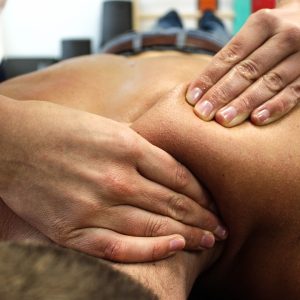Pregnancy and childbirth are transformative experiences that bring immense joy, but they also take a significant toll on a woman’s body, particularly the pelvic floor muscles. These muscles support critical organs, including the bladder, uterus, and rectum. During pregnancy and delivery, the pelvic floor can become weakened or overstretched, leading to postpartum complications. This is where pelvic floor physiotherapy becomes a vital part of postpartum recovery.
In this blog, we’ll explore the importance of pelvic floor physiotherapy postpartum, the common issues it addresses, and how it supports a smoother, healthier recovery journey.
Understanding the Pelvic Floor
The pelvic floor is a group of muscles and tissues that form a supportive “hammock” across the bottom of the pelvis. These muscles play a crucial role in maintaining continence, supporting pelvic organs, and contributing to core stability. During pregnancy, the growing baby and hormonal changes exert pressure on the pelvic floor, causing it to weaken. The physical strain of vaginal delivery can further stretch or injure these muscles.

Common Postpartum Pelvic Floor Issues
After childbirth, many women experience symptoms related to pelvic floor dysfunction.
These can include:
- Urinary Incontinence: Leaking urine when coughing, sneezing, or laughing.
- Pelvic Organ Prolapse: A feeling of heaviness or bulging in the pelvic area due to weakened support structures.
- Pelvic Pain: Discomfort or aching in the pelvic region that may interfere with daily activities or sexual function.
- Fecal Incontinence: Difficulty controlling bowel movements.
These conditions can impact a woman’s quality of life, both physically and emotionally. Fortunately, pelvic floor physiotherapy offers effective solutions.
Did You Know?
1 in 3 women experience some form of pelvic floor dysfunction after childbirth. Pelvic floor physiotherapy can help reduce this significantly with early intervention.
The Role of Pelvic Floor Physiotherapy in Postpartum Recovery
Pelvic floor physiotherapy is a specialized area of physical therapy that focuses on assessing and treating dysfunctions of the pelvic floor muscles. For postpartum women, this therapy can offer life-changing benefits:

1. Restoring Muscle Strength
Targeted exercises help strengthen the weakened pelvic floor muscles, improving bladder and bowel control. Consistent therapy reduces the risk of incontinence over time.
2. Relieving Pelvic Pain
Pelvic floor physiotherapy incorporates manual therapy to release muscle tension and address any spasms, alleviating pain and discomfort in the pelvic area.
3. Improving Core Stability
The pelvic floor works in harmony with the abdominal and back muscles to support posture and movement. Strengthening these muscles enhances overall stability and helps reduce lower back pain.
4. Enhancing Sexual Health
Postpartum women may experience pain or discomfort during intimacy due to pelvic floor dysfunction. Physiotherapy can improve muscle tone and flexibility, restoring sexual satisfaction and comfort.
5. Facilitating Full-Body Recovery
In addition to treating pelvic floor dysfunction, physiotherapy can address related conditions like diastasis recti (abdominal separation), supporting comprehensive postpartum recovery.
Postpartum Pelvic Floor Exercises
One of the most effective ways to strengthen the pelvic floor is through postpartum pelvic floor exercises. These include:
- Kegel Exercises: Contracting and relaxing the pelvic floor muscles to improve strength and endurance.
- Bridge Pose: Engaging the pelvic floor while lifting your hips strengthens the core and supports the pelvic region.
- Deep Breathing with Core Engagement: Combining diaphragmatic breathing with gentle core activation helps retrain the connection between the pelvic floor and abdominal muscles.
Reclaim Your Strength and Confidence with Pelvic Floor Physiotherapy
Motherhood is a journey filled with joy, challenges, and new beginnings. While the postpartum period can be physically and emotionally demanding, pelvic floor physiotherapy provides a proven path to recovery, helping women overcome challenges like incontinence, pelvic pain, and prolapse. Beyond addressing physical discomfort, this specialized therapy empowers you to feel strong, confident, and fully present for your new chapter of life.
Don’t let postpartum symptoms hold you back. Take the first step toward reclaiming your well-being and embracing motherhood with confidence. Explore our expert care Optimize Physio’s Pelvic Floor Physiotherapy Service. Our experienced team is dedicated to guiding you on the journey to recovery and helping you thrive in your postpartum life.







